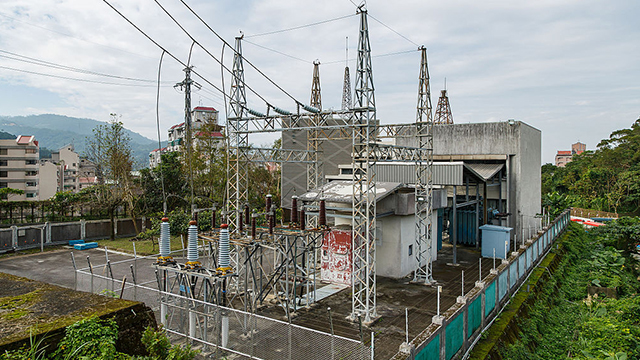Jakarta (Greeners) – To tackle global climate change, Indonesia has committed to reduce greenhouse gas emission 29 percent by 2030. Indonesian government has targeted for energy sector to contribute 11 percent or 314 million tons of CO2. Nevertheless, there is a gap policy between fossil fuel and renewable energy.
Based on Energy and Mineral Resources Ministry, renewable energy potential use is only two percent, — geothermal with a total potential of 11.0 Gigawatt, with 17.5 Gigawatt as reserve, and 1,949 Gigawatt or 0.44 percent for geothermal power plant, water with a total potential of 75 Gigawatt (19.3 Gigawatt), hydro fueled power plant realization (5,124 Gigawatt) and micro-hydro power plant 0,216 Gigawatt (or 1.21 percent), bio-energy with potential for 32.6 Gigawatt bio fueled power plant, biofuels for 200,000 barrel per day, bio fueled realization of 1,840 Gigawatt (0.42 percent), wind energy with a potential of 60.6 Gigawatt, wind power plant realization of 76.1 Megawatt (0,0002 percent), solar energy with a potential of 207.8 Gigawatt solar power plant, 0,090 Gigawatt peak (0.02 percent) and ocean energy with a potential of 17.9 Gigawatt, which have yet to be managed.
“There are lots energy have yet to be managed. From the total of renewable energy of 441.7 Gigawatt, there was only 9.29 Gigawatt installed or two percent. It means there are lots of obstacles and challenges we need to address and fix,” said Mustaba Ari, head of infrastructure monitoring of New and Renewable Energy and Conservation Energy, Ministry of Energy and Mineral Resources in Jakarta.
READ ALSO: ICCTF Funds 76 Climate Change Projects in Indonesia
One of the challenges is the funding. Ari said that renewable energy is still expensive and less competitive compare to cheap fossil fuel. In addition, there is still no support or subsidy to make renewable energy being implemented.
“Renewable energy is expensive, automatically, people’s purchase power needs to be higher. However, this non-emission renewable energy and this is inversely proportional with fossil fuel with cheap price, low purchase power, but with emission. Which one will you choose,” said Ari.
Meanwhile, Moekti Handajani Soejachmoen, assistant to Special Envoy for Climate Change, said the challenge for renewable energy is price competition or lower price. Furthermore, Soejachmoen said that current policy does not accommodate and consider greenhouse gas emission and CO2 emission are the burden and price borne by fossil.
“Our fossil energy does not include the environment costs and does not include costs of CO2 emission which affected greenhouse gas emission, so, it will definitely be cheap. If we agree (fossil fuel) must be cheap to be affordable, but we need to look 20 years ahead, for instance, if there’s climate change, then we’re down,” she said in Jakarta, on Wednesday (1/08/2018). “It’s different with renewable energy which at first can be expensive but there’s no emission.”
BACA JUGA: Indonesian and Japanese Scientists to Develop Sorghum for Biofuel
Based on British Petroleum & Gapminder, fossil fuel is one of the main greenhouse gas emitter. Indonesia is ranked 14th for fossil fuel consumption, coming from power plants and industry with major and significant emission in the national emission mix.
“We hope this renewable energy can be developed because fossil will, at the end, run out. Currently, we have issues with imported fossil fuel and expensive, however, we can use that as the reason to develop renewable energy as it will get cheaper and fossil fuel will get expensive in the long run,” she said adding that energy sector can meet 11 percent target as planned by Nationally Determined Contribution, but, there’s a need to change the policy on fossil fuel use.
Reports by Dewi Purningsih



















































